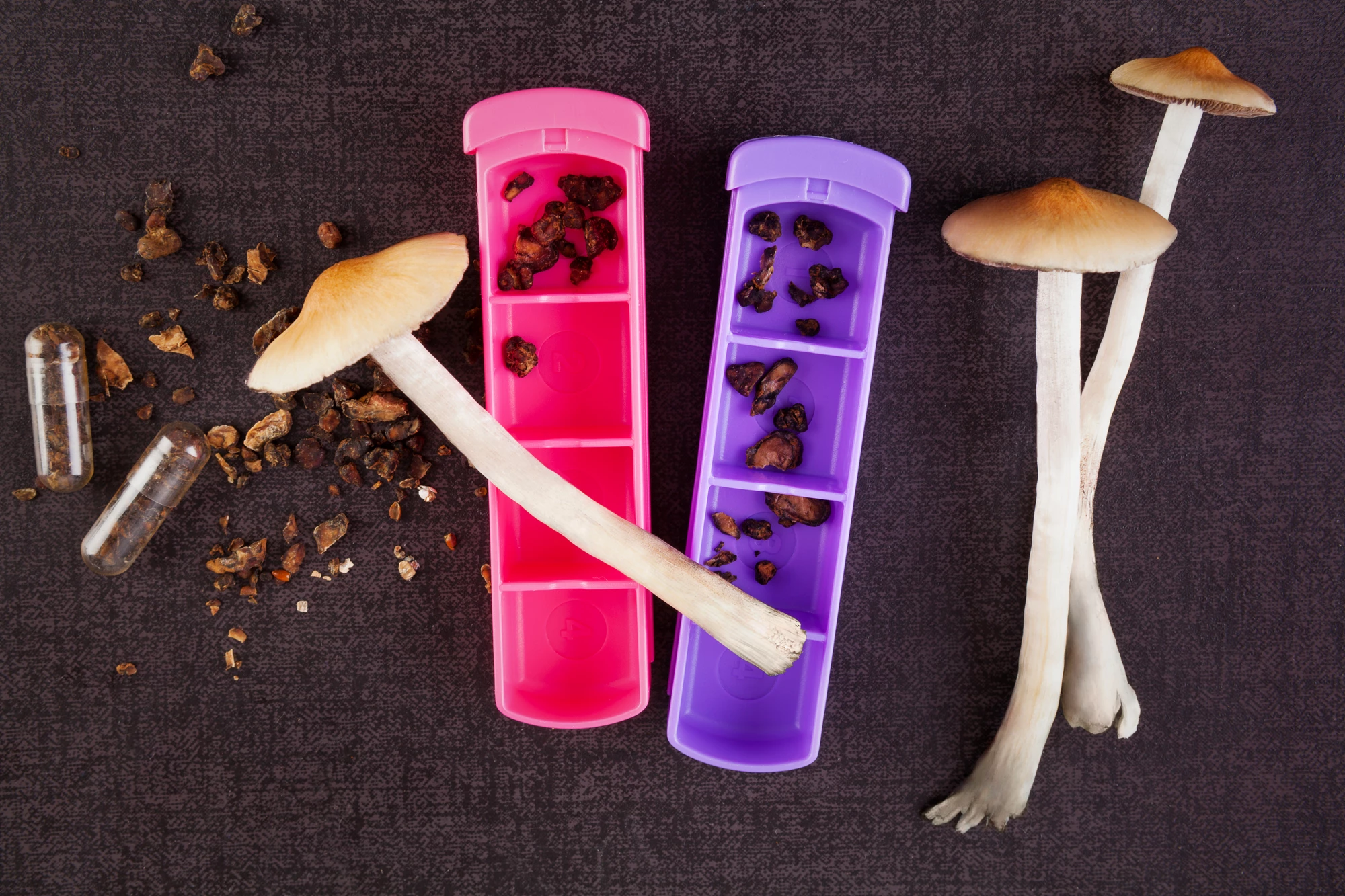A new study is presenting the first published data from preliminary human trials investigating the effect of psilocybin-assisted psychotherapy to treat major depressive disorder (MDD). The incredibly positive results have been described as just a “taste of things to come” with larger a Phase 2 trial well underway.
The US Food and Drug Administration (FDA) has granted psilocybin, the primary psychoactive compound in magic mushrooms, a Breakthrough Therapy designation on two occasions over the past 24 months. Initially the designation was granted to help accelerate trials for severe treatment-resistant depression, but more recently the classification focused on trials for major depressive disorder.
Over the last few years promising preliminary research has shown psilocybin to potentially be effective in helping terminal cancer patients manage end of life anxiety. Initial psilocybin trials focusing on depression concentrated specifically on treatment-resistant depression – a clinical classification that categorizes patients suffering from MDD who have not responded effectively to at least two different pharmacological antidepressant treatments during a current depressive episode.
MDD is much more common, with some estimates suggesting over 300 million people worldwide suffer from the debilitating condition. While a larger Phase 2 trial testing psilocybin for MDD is currently underway, this new study, in the journal JAMA Psychiatry, offers the first peer-reviewed published data showing efficacy for this particular mental health condition.
This small preliminary trial recruited 24 subjects with at least two-years documented history of depression. All subjects were required to wean off any anti-depressant treatment before the trial commenced.
Depression was assessed using the standard GRID-Hamilton Depression Rating Scale. Severe depression scores 24 or higher on the scale, while seven or less is classified as no depression. At the beginning of the study the average score for the cohort was 23.
The treatment process resembled the general protocol used in most psilocybin studies. Two doses of psilocybin were administered to each subject, spaced two weeks apart. A number of psychotherapy sessions both preceded and followed the active psilocybin sessions.
The results were undoubtedly impressive with 71 percent of the cohort displaying more than a 50 percent reduction in depressive symptoms at the four-week follow up. The average depression score for the cohort had dropped from 23 to 8 a month later, and more than half of the group were considered to be in remission.
“The magnitude of the effect we saw was about four times larger than what clinical trials have shown for traditional antidepressants on the market,” says Alan Davis, from the Johns Hopkins University School of Medicine and corresponding author on the study. “Because most other depression treatments take weeks or months to work and may have undesirable effects, this could be a game changer if these findings hold up in future ‘gold-standard’ placebo-controlled clinical trials.”
The study is not without its limitations. It’s a small sample, with no placebo control, so clearer data from larger trials are certainly important. Plus, only a short follow-up period limits the ability to understand the longer-term benefits of the therapy.
However, psychedelic research pioneer Roland Griffiths suggests it is impressive to see these kinds of results from a broad population of MDD patients. Prior psilocybin studies have focused on narrow mental health conditions such as terminal cancer patients, but MDD is a more general condition with a wide variety of manifestations.
“Because there are several types of major depressive disorders that may result in variation in how people respond to treatment, I was surprised that most of our study participants found the psilocybin treatment to be effective,” says Griffiths.
Philanthropist Tim Ferriss, who financially supported this preliminary study, calls this new research a “critically important proof of concept.” A well-known advocate for psychedelic medicine, Ferriss says these promising results are only the beginning of a major paradigm shift in mental health treatment.
“How do we explain the incredible magnitude and durability of effects?” asks Ferriss. “Treatment research with moderate to high doses of psychedelics may uncover entirely new paradigms for understanding and improving mood and mind. This is a taste of things to come from Johns Hopkins.”
A seven-site Phase 2 trial currently underway is testing the efficacy of a single psilocybin dose (bookended by several psychotherapy sessions) in a larger cohort of MDD subjects. Coordinated by a non-profit research organization called the Usona Institute, the trial is hoped to reach completion sometime in 2021. And with the help of the FDA’s Breakthrough Therapy designation, positive results should lead to a rapid move into final Phase 3 trials.
The new study was published in the journal JAMA Psychiatry.
Source: Johns Hopkins Medicine




